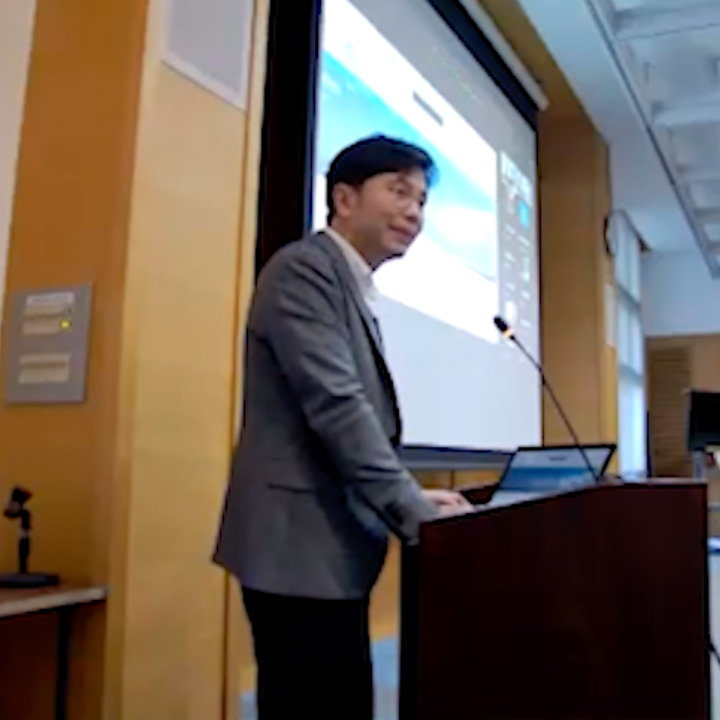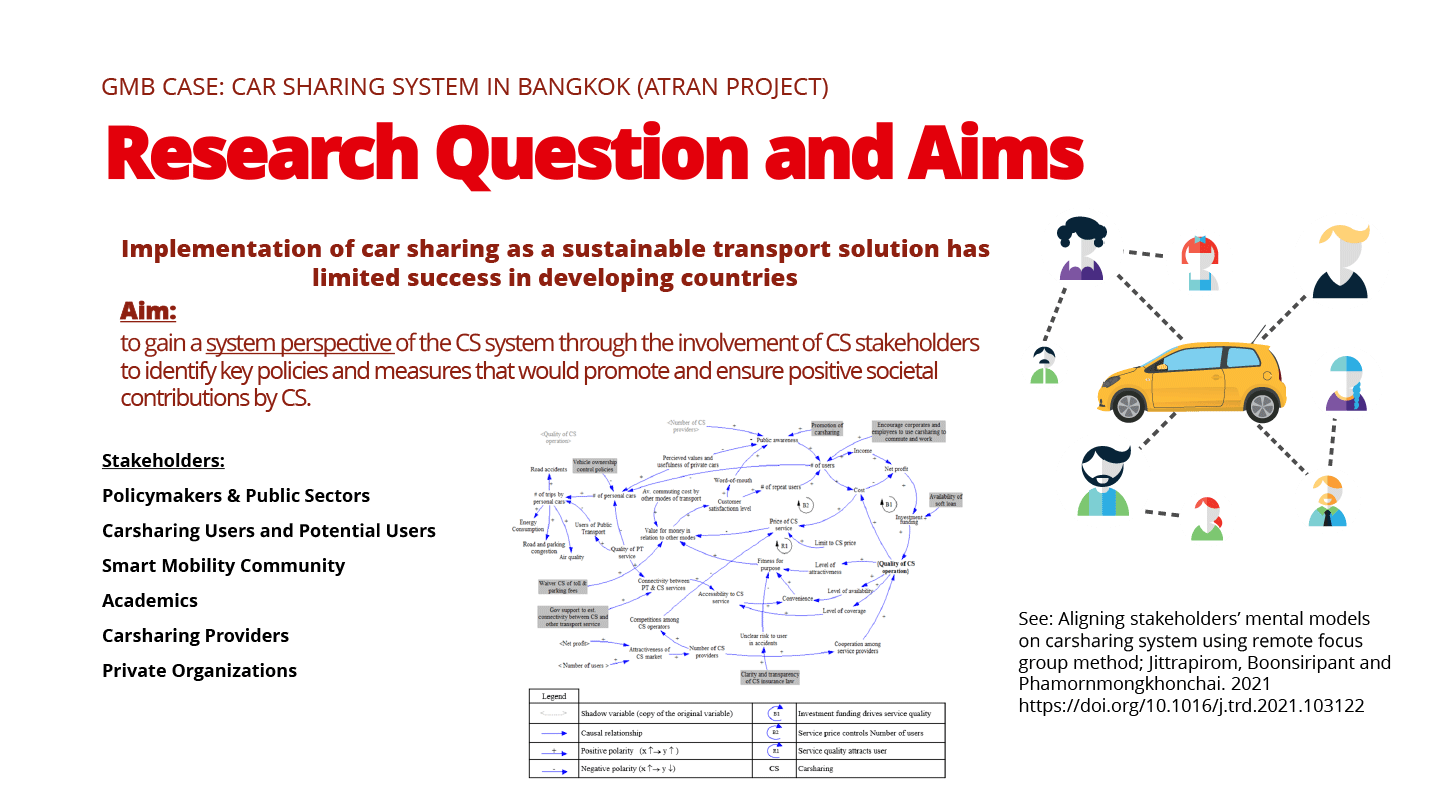Seminar report: Global Carbon Budget 2023 and Participation and Transdisciplinary Research for Sustainability Science: Challenges and Opportunities in the Transport Sector

The Global Carbon Project Tsukuba International Office, National Institute for Environmental Studies (NIES - Japan) organized a seminar titled: “Participation and Transdisciplinary Research for Sustainability Science: Challenges and Opportunities in the Transport Sector” on 21 December 2023. The seminar aims to discuss the contributions, challenges, and opportunities of participation and transdisciplinary research approach in sustainability science. The focus is particularly on the transport sector, a major contributor to global greenhouse gases and a sector that has seen a slow sustainable transport transition. Despite available technologies, more than 90% of global transport activities are still powered by fossil fuels. Dr. Peraphan also highlighted the Global Carbon Budget 2023, of which the details of the publications can be found here
The involvement of stakeholders in research has been recognized as an important approach to addressing global sustainability challenges. Participation of stakeholders can be a means to provide multiple perspectives to the issue of interest, generate knowledge to make sense of the challenges and their contexts, formulate desirable states, and identify actions required to foster transformation processes toward sustainable futures. Applications of participation can also bring about several benefits concerning the planning and implementation of solutions that address global sustainability challenges, such as trust-building, stimulating social learning, building capacity, mobilizing support, and empowering stakeholders. However, several challenges also have been observed. For example, the difficulties in convening stakeholders, the intense efforts and time required and the low willingness to participate.
In this seminar, Dr. Peraphan Jittrapirom elaborated on the lessons learned from his research projects in transport sectors in which he involved stakeholders and experts through various processes, such as vision-making, group model building, and adaptive planning processes with examples from Thailand and the Netherlands. In his Thailand project, Dr. Peraphan used the Group Model Building (GMB) method to support decision-makers and relevant stakeholders to gain a holistic understanding of Bangkok’s carsharing system. For the Netherlands project, a generative and robust vision-making framework was initiated and applied to help formulate a vision for the transport system of the southwest area of the Hague city in 2022.
Although the carsharing system has been operated in the city for over a decade, there is still a limited understanding of how the system operates and contributes to improving the sustainability of the transport system. The research project engaged with over 15 stakeholders, from different organizations and individuals, including transport planning and policymaking public organizations, carsharing providers, private developers, and carsharing users in 2020. The process involved semi-structured interviews and two workshops of which all activities were carried out online due to covid restrictions in Thailand at the time. Through the participative process, stakeholders exchange their opinions systematically on the subject. The project produced a causal loop diagram that illustrated the shared mental model and understanding of the participants on the city’s carsharing system subject. The model can be used to preliminary evaluate carsharing and transport policies and provide a basis for a quantitative model. Additionally, the process also fosters trust among the participants.

Vision-making is a method that has been widely adopted to support transport planning processes. However, in most cases, the visioning process is applied haphazardly and does not address uncertainty explicitly. Dr. Peraphan and his team combined the appreciative inquiry and the adaptive decision-making frameworks to improve the decision-making process. The generative and robust decision framework was applied to the case study in a pilot process that involved the public, decision-makers, and representatives from the local areas to construct a vision for its transport system. Dr. Peraphan also reflected on how the two methods were applied using the transdisciplinary research’s integration of knowledge framework and decision-making under deep uncertainty frameworks. He concluded that each of these participation processes and methods has its own merits and limitations. It is therefore important for researchers to be mindful and transparent in combining these research methods to support practitioners in planning sustainable transport transitions.
This conference also marked the transition of Exc. Director to Dr. Yosuke Niwa from January 2024. Dr. Peraphan is grateful for the opportunity to contribute to GCP Tsukuba and its wider network between 2019 and 2024. He would like to thank in particular, Dr. Nobuko Saigusa, Dr. Tomoko Shirai, and Ms. Akiko Okamoto, for their support and collaboration. He is thankful for the warm community of NIES during the time of his stay, particularly in being part of the Tennis club and the international community where he made many fond memories.

